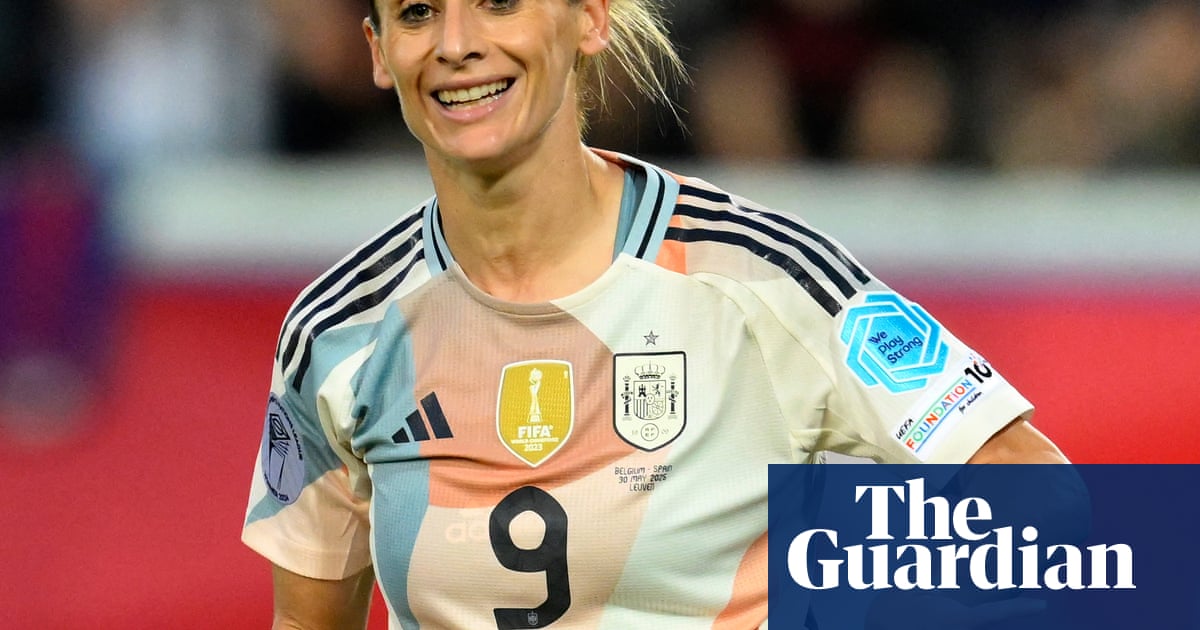Esther González is at the top of her game. The 32-year-old striker’s list of accolades – World Cup winner, three-time Liga F champion, National Women’s Soccer League champion, Copa de la Reina victor and Concacaf W Champions Cup winner – is matched by few in the sport. But as a young girl growing up in southern Spain, her path was uncertain, rife with obstacles. “As a child, I dreamed of what I wanted to be when I grew up,” she says. “It was a soccer player. But, let’s say, circumstances didn’t allow me to see women’s soccer or anything close to women’s soccer.”
As she grew up with three sisters, González’s earliest memories of football were playing with herhermanasin their small village in Andalusia. She dreamed of being a footballer, but there wasn’t a path before her. The shy young talent with a nose for goals would play with the local boys: they needed a goalscorer and she stepped in. As González grew, her father took her on car journeys of more than four hours each way to get to training.
Today González and Spanish women’s football are in a much different place: “The change in mentality that took place in Spain was incredible, because until about five years ago the visibility we had was very low,” she says. “So we really had to work hard and many times we had to work in the shadows. Girls can now grow up knowing that in Spain there are Ballon d’Or players who can become world champions.”
Since the inaugural Ballon d’Or Feminin in 2018, four of six trophies have gone to two Spanish players, twice each to Barcelona’s Alexia Putellas and Aitana Bonmatí. On the challenges they all faced, González says: “I feel lucky because I am part of that transition, because I have lived the part from when, let’s say, we had almost no opportunities to live … ”
The drive to succeed despite inordinate obstacles is evident in the way González plays, and the unique journey she’s taken. The 5ft 3in forward is skilled in the air despite her height, has a remarkable intuition for time and space, astutely adapts her game to the opposition, and contributes defensively. She left Real Madrid in 2023 as their all-time leading scorer, with 39 goals in 77 games, and co-leads the NWSL golden boot race with seven goals in 11 games.
“I’m not just a player, but a player who thinks a lot, who works hard on matches even before they start, because I try to determine who I’m facing and who I’m not.”
This summer in Switzerland, González will be one of four Spain players from the NWSL at the Euros. Now at Gotham FC, she says the challenge of something new was behind her move to the US. She was attracted to Gotham’s ambitions and the league’s competitive depth. “When I left Spain to come here, I came to prove that I was also a much more complete player, better than the one who only knows how to touch the ball, than the one who also knows how to adapt.”
González signed for Gotham in the summer of 2023 and quickly made an impact, scoring the winning goal in the NWSL Championship. In May in Mexico, she scored Gotham’s winner in a 1-0 victory over Tigres in the Concacaf W Champions Cup, securing her second trophy stateside.
Two more goals followed for Spain in the Nations League, but González is not resting on her laurels. “I hope I’m not in my best moment. I hope to have better moments, that the best is yet to come.”
Ambitious, focused, invigorated by hard-earned achievements – just like her national team. Afterwinning their first World Cup in 2023and enduring the fallout from theRubiales scandal, Spain’s confidence in major tournaments has improved on 2022, whenLa Rojalost 2-1 to England in the quarter-finals (their goal scored by González). “In order to create things you have to first believe that you can achieve them,” she says. “As a team, we believe we can achieve everything.”
Sign up toMoving the Goalposts
No topic is too small or too big for us to cover as we deliver a twice-weekly roundup of the wonderful world of women’s football
after newsletter promotion
Of the Euros, where Spain share a competitive group with Italy, Belgium and Portugal, she adds: “It will be difficult, tough, there will be times when we’re tired, when there’s also a lot of travelling involved, but to achieve things, you have to believe that you can achieve them. And so I believe and work to make that happen.”
If you have any questions or comments about any of our newsletters please emailmoving.goalposts@theguardian.com
This is an extract from our free weekly email, Moving the Goalposts. To get the full edition,visit this page and follow the instructions. Moving the Goalposts is back to its twice-weekly format, delivered to your inboxes every Tuesday and Thursday.
